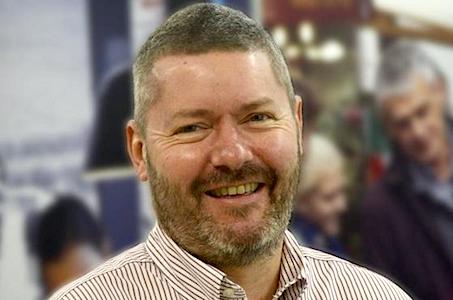Professor Pete Langdon appointed President of INQUA HABCOM (Humans and Biosphere) Commission for the 2023-2027 inter-congress cycle

Professor Pete Langdon, Professor of Quaternary Science at the School of Geography and Environmental Science and Associate Dean at the Faculty of Environmental and Life Sciences at the University of Southampton, has been appointed President of HABCOM (Humans and Biosphere Commission) for the International Union for Quaternary Research (INQUA). He has worked with INQUA as a Vice President for HABCOM since 2015 and will now lead the Commission as President for this inter-congress cycle 2023-2027.
Professor Langdon has over 20 years of working with lake sediments and ecosystems across the world. Over the last 15 plus years he has increasingly focused on freshwater ecosystem responses and resilience to multidimensional drivers and linking palaeolimnology with contemporary limnology. He has, with colleagues, developed a series of novel metrics based on system structures and networks by which to measure freshwater system resilience, over time, across spatially variable pollution and related drivers, and in the face of climate change. He uses a range of techniques to reconstruct environmental-human interactions, from microfossils, to stable isotopes, and molecular approaches (e.g. sedimentary DNA). He has published over 100 papers in international journals and worked on a wide variety of grants from both national and international funding agencies.
Professor Langdon comments. “I have worked with INQUA for the past eight years to support improved communication and international collaboration in experimental and applied aspects of Quaternary research. I am delighted to now take up the position of President of HABCOM within INQUA to continue this work with our international partners to further understand human responses to global and regional changes and to evaluate the scale and rates of global environmental changes during the recent geological past.”
The International Union for Quaternary Research was founded in 1928 by a group of scientists seeking to improve understanding of environmental change during the glacial ages through interdisciplinary research. Today, more than 46 member countries, spread throughout the world, contribute to INQUA's vitality. INQUA's basic goal - “promoting improved communication and international collaboration in basic and applied aspects of Quaternary research” - is achieved mainly through the activities of its commissions and committees.
Further information about the leadership team and INQUA organization, check the podcast on Spotify: https://open.spotify.com/show/2B2yOeErFzMwKzHXlnnwZv.